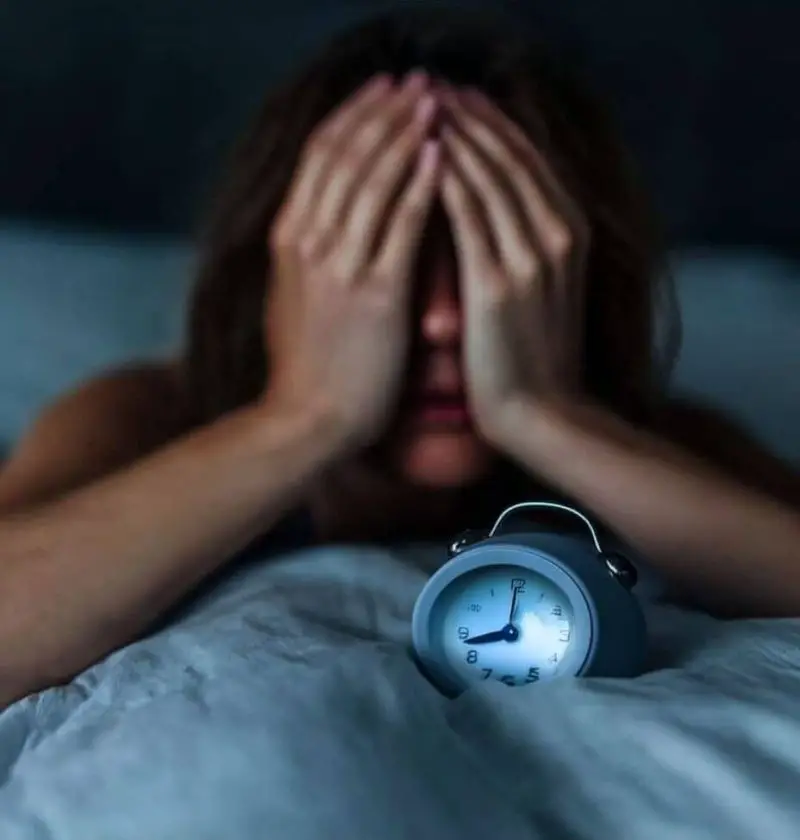Save This Recipe
You know that moment. It’s 3:27am. You’re wide awake, staring at the ceiling, mentally calculating how many hours you might sleep if you could just drift off now. Annoying, right?
A night here and there? Fine, happens to everyone. But when you keep waking up between 3 and 5 in the morning — and it’s messing with your whole day — it’s worth digging into what’s going on.
So, why does your brain flip the “wake up” switch when all you want is to keep dreaming? Let’s break it down — no jargon overload, promise.
Why Do We Wake Up at 3am? — A Peek at Sleep Cycles
Sleep’s not just one long nap. It’s a loop of cycles — light sleep, deep sleep, REM — over and over, each about 90-ish minutes. And guess what? Between 3 and 5am, you’re usually in the lighter or REM stage.
This means you’re more likely to wake up. A car horn outside, a weird dream, your bladder doing its thing — bam, eyes open. And the kicker? REM sleep is when your brain’s busier — dreams, memories, weird thoughts about that embarrassing thing you did in 8th grade. So once you’re awake, good luck shutting it down again.
Hidden Culprits — From Aches to Anxiety
Sometimes it’s simple. Sometimes it’s a mixed bag of stuff you’d never think would cost you sleep.
Physical Stuff Nobody Warned You About
-
Sleep Apnea: A fancy term for your breathing deciding to take micro-vacations while you sleep. You snore, wake up gasping, repeat.
-
Pain: Bad back? Achy knees? That shoulder that’s still mad at you from CrossFit two years ago? Pain doesn’t care what time it is.
-
Bathroom Trips: Not exactly glamorous, but if you’re up peeing three times a night, your body clock’s gonna hate you.
-
Hormones: Oh, the joys of hormones. Menopause, thyroid wonkiness — they can all mess with sleep like a nosy neighbor.
The Brain’s Favorite Pastime — Worry
Stress hormones (hi, cortisol) don’t check the clock. They just rise and fall on their own weird schedule. If you’re carrying big worries to bed, your mind might hit the gas pedal right around the early morning.
Anxiety, depression, and that endless mental to-do list all love to keep you on the edge of sleep. One worry leads to another — next thing you know, you’re doom-scrolling at 4am.
Environment and Habits — The Sneaky Stuff
That extra espresso at 4pm? The third glass of wine “to help you sleep”? The 2-hour Netflix binge in bed with your phone inches from your nose?
These habits mess with your natural melatonin flow. Plus, any noise — a snoring partner, restless pet, creaky pipes — can be enough to pop you awake when you’re drifting through light sleep.
Stress — The Midnight Companion Nobody Wants
Let’s be honest: telling people “don’t stress” is about as helpful as telling a cat “don’t knock stuff off the shelf.”
Life’s stressful. Money, relationships, work drama, existential dread — your mind doesn’t care that it’s pitch black outside. If anything, it loves the silence because it’s got you all to itself.
Here’s the thing: your body’s stress system evolved to keep you alive. But modern stressors don’t need you to run from a lion — they just make you run from your own thoughts. And sleep takes the hit.
So, What Can You Actually Do?
Good news: you don’t have to just accept it. Small tweaks — stuff you actually will do — can help you stay asleep longer.
Small Tweaks, Big Impact
-
Keep caffeine to mornings. Afternoon lattes aren’t your friend.
-
Same goes for alcohol. It might make you sleepy at first, but it can fragment sleep later.
-
Stick to a schedule — weekends too. Yeah, it’s boring. But your brain likes routine.
-
Move your body. A quick walk or gentle yoga can help your sleep quality more than you’d think.
Make Your Bedroom Work for You
Your bedroom should feel like a calm cave, not an office or entertainment center.
-
Cool it down — 65-ish degrees is the sweet spot for most folks.
-
Blackout curtains are worth it. Light messes with melatonin.
-
Ditch screens at least 30 minutes before bed. Blue light tricks your brain into thinking it’s daylight.
-
Invest in your bed — the mattress, pillows, sheets. You spend a third of your life there. Make it comfy.
Taming the Mind: Relaxation that Actually Sticks
You don’t have to become a monk. But tiny moments of calm help.
-
Try deep belly breathing — in for four, out for six. Repeat.
-
Guided meditations can work wonders (apps like Calm or Headspace are solid starts).
-
Progressive muscle relaxation — tense a muscle group, hold, release. It grounds your body when your mind’s off wandering.
When You Might Need Extra Help
Here’s a truth bomb: sometimes, your sleep struggles need more than lavender spray and meditation playlists.
If you’re doing all the right things and still wide-eyed at 3:30am every night, talk to a doctor. Sleep apnea, restless legs, or underlying mental health issues might need a pro’s touch.
There’s no shame in asking for help. Cognitive-behavioral therapy for insomnia (CBT-I) is a legit game changer for lots of people. Sometimes medication helps, too — but that’s a convo for your doc.
Wrapping Up — Waking Up Refreshed is Possible
Waking up in the dead of night can feel like a lonely club nobody asked to join. But you’re not stuck with it forever.
Understand what’s poking your sleep cycle. Tweak the stuff you can. Don’t be afraid to ask for help with the stuff you can’t tackle alone.
And hey, next time you’re wide awake at 3am? Maybe try not to stress about not sleeping. Sometimes, taking the pressure off works better than staring at the clock.
Sleep well. Or at least, sleep better. You deserve it.

